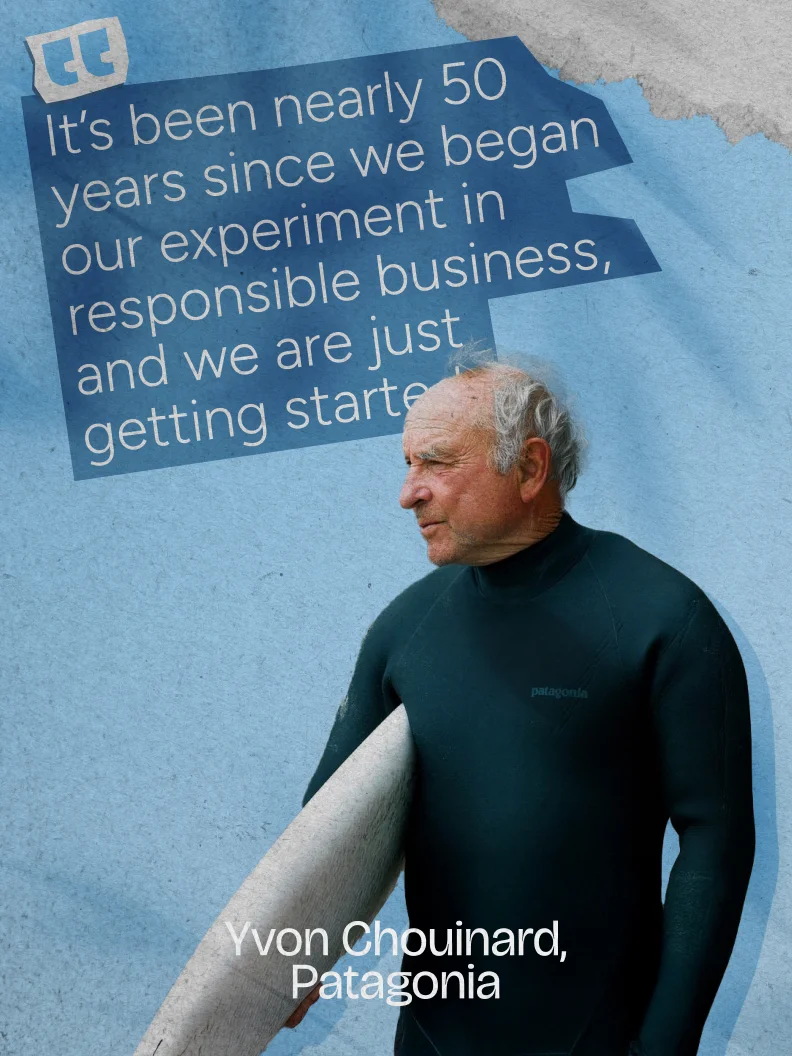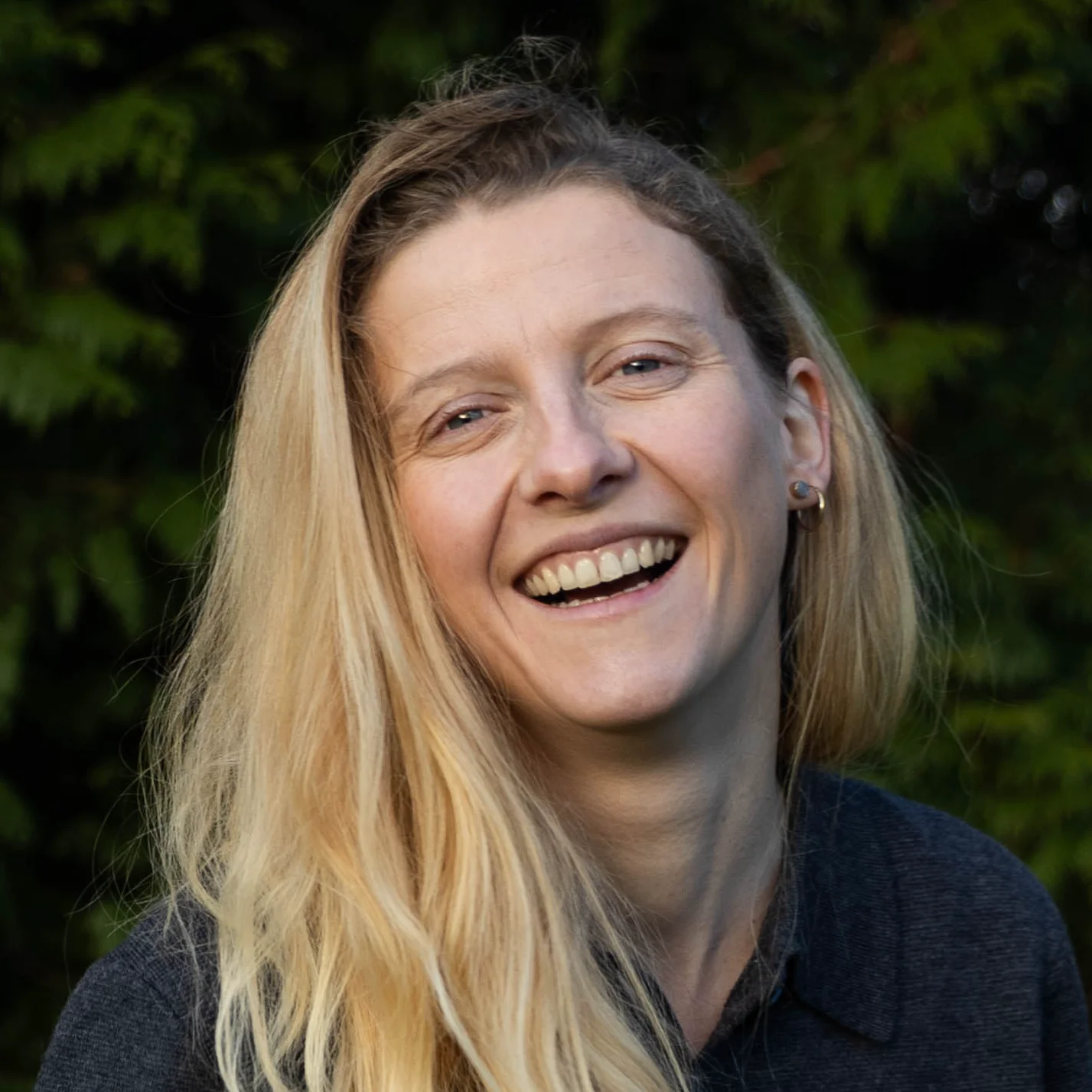
Say ‘circular’ and we’re hearing ‘Patagonia’. Few companies have worked as tirelessly to do business for good as Patagonia, making as many ethical choices as possible. From donating the company to combat climate change, to publishing their supply chain. And from offering pre-loved clothes and life-time repairs, to supporting grassroots activism. Not to mention letting employees go surfing when the waves are too good to ignore. It’s clear: Patagonia is in a league of its own. And behind it all is unintentional entrepreneur Yvon Chouinard.
Yvon Chouinard was born on November 9 in Lewiston, Maine, United States. He's the son of French-Canadian immigrants. His father was a hardworking mechanic and builder. The family later moved to Southern California.
1950s: Thought himself blacksmithing, selling climbing gear from the trunk of his car
1965: Founded Chouinard Equipment
1973: Founded Patagonia
2002: Founded 1% for the planet
2005: Wrote Let My People Go Surfing
2022: Transferred Patagonia’s ownership to a trust and nonprofit to combat climate change.
The Unintentional Entrepreneur, sounds like a good book title right? But it’s the reality of Yvon Chouinard. All he wanted was to make quality climbing gear for himself and his friends. So, he thought himself blacksmithing and started crafting equipment in his father’s garage in California.
Word spread fast. Everyone wanted his gear, because it was durable, reliable and revolutionary. Soon enough, he founded Chouinard Equipment. Already then, Chouinard did his part in environmental conservation: he invented pitons and chocks that reduced damage to rock faces, professing ‘clean climbing’.
But as demands grew, so did his environmental concern about the impact of producing his metal gear. That’s when he pivoted from hardware to apparel, founding Patagonia, the outdoor clothing brand that became synonymous to sustainability and ethical business.
Where to begin… Well, if you want to know the full, insanely inspiring story, pick up a copy of Chouinard’s book Let My People Go Surfing. We’ll try to summarize his pioneership in a few bullets:
Patagonia’s worn wear program is a textbook example in circularity. Their mantra? “One of the most responsible things we can do for the planet is to keep our gear going longer. That’s why we’re making it as easy as possible to repair your gear.”
Within their worn wear program, Patagonia also resells used items. Good news if you live in the US: Patagonia buys back pre-loved gear and resells it online, giving items a second life – saving it from the landfill. In their online shop, you can buy pre-loved gear at good prices.
If you’re in Europe, you can visit their Berlin store, where you can find pre-loved and patched up gear. These items are insanely popular. If you’re looking for a specific style, colour and size, you can let the in-store crew know, and they’ll try to find it for you. Patagonia plans to expand pre-loved shopping to other cities soon.
We won’t try to describe it better than themselves. So, here’s a copy-paste from the website of their Worn Wear Program:
“Repairs may be visible. Yet this isn't a bad thing. Your repaired gear tells a story—its visible repair remains as a reminder to the adventures gone wrong. A perceptible scar that marks the start of an extra chapter for your gear.
Repairing the things we own may not come naturally to most of us. Yet when we fix an item of clothing, replace a broken buckle, or even sew on a new button, we’re fixing our relationship with the things we own. Reducing our need to keep producing. Repairing what was once so readily replaced. Repaired items will never be perfect—but it was this quest for perfection that made us forget the value of repairs in the first place. Repair your gear in-store today. Replace your gear only when it can no longer be repaired.”
Yvon Chouinard proves that business can be a powerful force for good. Add to this his modest lifestyle – he doesn’t want nor need much besides spending time outdoors, and you have this rare kind of entrepreneur who doesn’t just climb mountains. He moves them.
In a former life Nina was circular economy advisor. She was missing a creative touch in her life, so she turned to copywriting instead. Then she was missing a sustainability touch in her life, so she combined the two. Now she's a sustainability advisor who writes, or - if you will - a writer who gives sustainability advice. She does this with her own company New Alchemists.
Nina helped setup Rethink Things. Together with the Rethink Team, she developed our strategy, branding, website, socials, newsletters, you name it. Today, she continues to write for the platform.

Subscribe to the monthly mindshift
Our very best, every month in your mailbox. Subscribe now and join the reloved revolution!